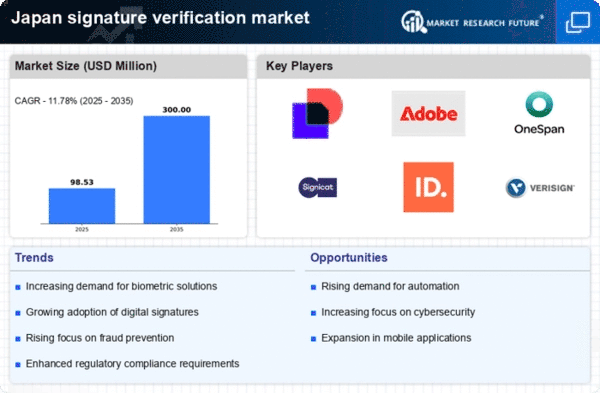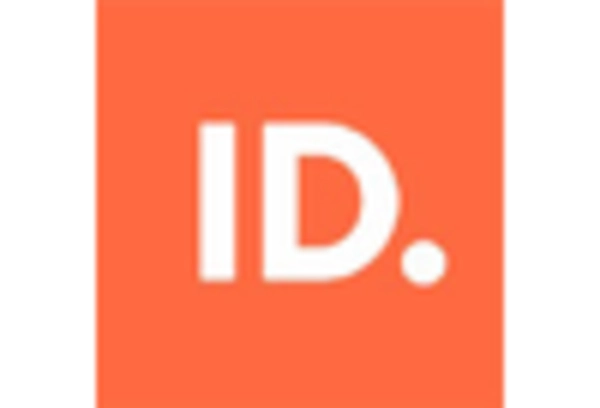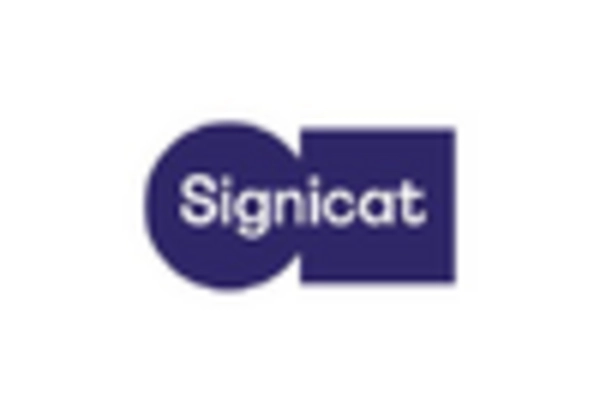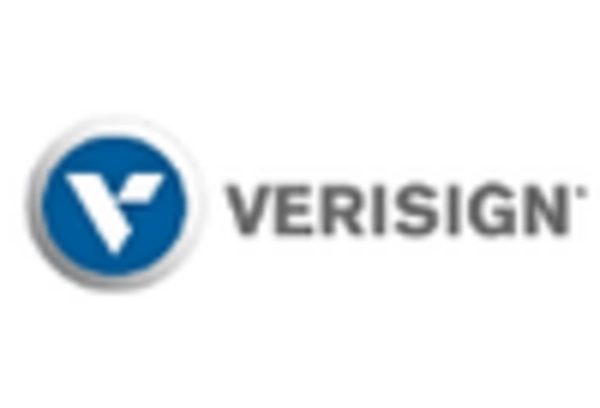Rising E-commerce Activities
The rapid expansion of e-commerce in Japan has significantly influenced the signature verification market. With more consumers opting for online transactions, the need for secure and reliable verification methods has become critical. In 2025, the e-commerce sector is anticipated to grow by 12%, which in turn drives the demand for signature verification solutions. Businesses are increasingly implementing these technologies to ensure the authenticity of transactions and protect against fraud. This trend is particularly relevant in sectors such as retail and logistics, where the verification of digital signatures is essential for maintaining customer trust and satisfaction. Consequently, the signature verification market is likely to benefit from this upward trajectory.
Demand for Remote Work Solutions
The shift towards remote work in Japan has created a pressing need for effective signature verification solutions. As organizations adapt to flexible work arrangements, the reliance on digital documentation has surged. This trend has led to an increased focus on ensuring that electronic signatures are both secure and legally binding. In 2025, the signature verification market is expected to expand by 18% as companies seek to implement solutions that facilitate remote transactions while maintaining compliance with legal standards. The ability to verify signatures remotely is becoming a critical component of business operations, particularly in industries such as real estate and legal services, where document integrity is vital.
Increasing Cybersecurity Concerns
The rising incidence of cyber threats in Japan has heightened the demand for robust security measures, particularly in the signature verification market. Organizations are increasingly recognizing the importance of safeguarding sensitive information, which has led to a surge in the adoption of advanced signature verification technologies. In 2025, the market is projected to grow by approximately 15%, driven by the need for secure digital transactions. This trend is particularly evident in sectors such as finance and healthcare, where the integrity of signatures is paramount. As businesses strive to protect themselves from data breaches, the signature verification market is likely to see continued investment in innovative solutions that enhance security and trust.
Integration with Emerging Technologies
The signature verification market is experiencing a transformative phase due to the integration of emerging technologies such as artificial intelligence (AI) and blockchain. These technologies offer enhanced accuracy and efficiency in verifying signatures, which is crucial for businesses in Japan. AI algorithms can analyze signature patterns with remarkable precision, reducing the risk of forgery. Furthermore, blockchain technology provides a decentralized and tamper-proof method for storing signature data, thereby increasing trust among users. As organizations seek to streamline their operations and improve security, the adoption of these technologies is expected to propel the signature verification market forward, potentially increasing its value by 20% over the next few years.
Growing Awareness of Digital Identity Management
As digital identity management becomes increasingly important in Japan, the signature verification market is poised for growth. Organizations are recognizing the necessity of establishing secure digital identities for their users, which includes reliable signature verification methods. This awareness is driving investments in technologies that enhance identity verification processes. In 2025, the market is projected to grow by 10% as businesses prioritize the protection of user identities and the integrity of digital transactions. The signature verification market is likely to play a crucial role in this landscape, providing solutions that not only verify signatures but also contribute to a comprehensive digital identity management strategy.
















